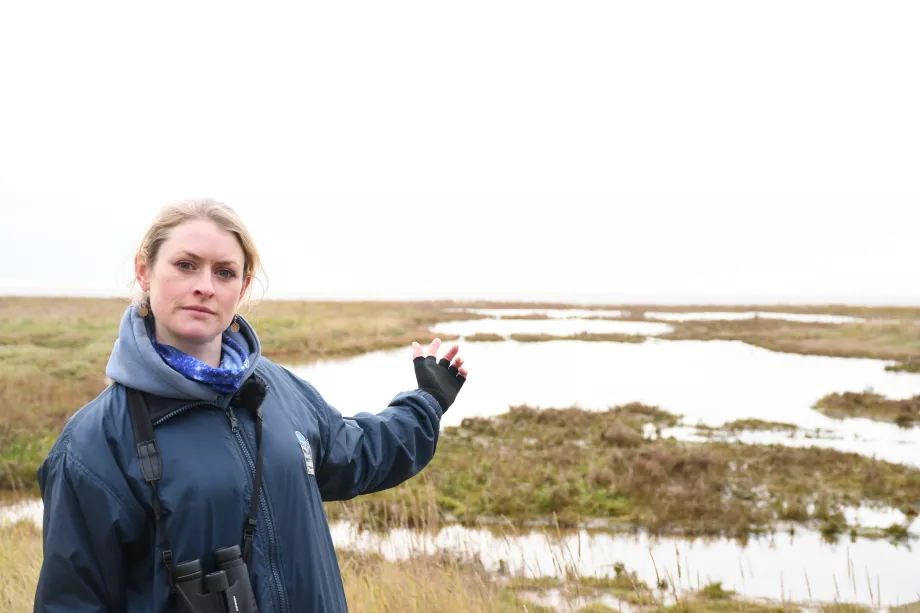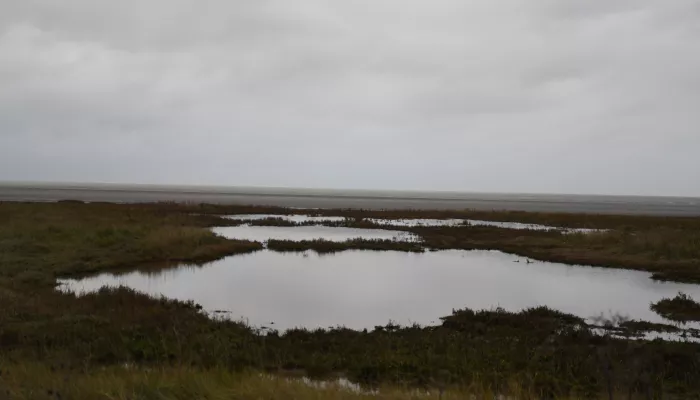Tim Horton
What will be the impact on wildlife?
Sandwich and Pegwell Bay is a haven for wildlife, designated as internationally important and protected by UK law. However, the area and sites around it is under threat.
- Pegwell Bay is home to Kent’s largest population of seals. Plans for Sea Link have only involved a ‘desktop mammal survey’ and ecologists remain concerned that the development will impact the seal colonies living along the shore.
- The offshore cable will impact European protected Annex I habitats, likely associated with Margate Long Sands Special Area of Conservation (SAC).
- The development has the potential to cause irreversible habitat loss to Goodwin Sands which is in a Marine Conservation Zone (MCZ) and supports diverse epifauna such as Sabellaria Reefs, a priority habitat and blue mussel beds. The sandbanks are also important spawning and nursery grounds for species such as thornback rays.
- The golden plover, turnstone, and red-throated diver have all been recorded at Pegwell Bay and the surrounding sites and are at risk of being displaced through disturbance. The golden plover and turnstone are designated features for Thanet Coast and Sandwich Bay Special Protection Area (SPA)
- The proposed route for overhead cables and converter and substation will directly impact Sandwich Bay and Hacklinge Marshes SSSI, Ash Level and South Richborough Pasture Local Wildlife Site (LWS) and Woods and Grassland Minster Marshes LWS.
- The development would result in the loss of 13.6ha from within Minster Marshes, an area with priority habitats and functionally linked land which plays a vital role in supporting the species for which Thanet Coast and Sandwich Bay SPA has been designated. Significant numbers of golden plover have been recorded using the field where the new converter and substation are proposed.

Nina Jones pointing out damage from the Nemo Link
How can you help?
If you are concerned about this threat to wildlife, you can comment on the consultation and highlight your objections.
You can read our previous response to the consultation here.
Our response outlines these concerns:
- We are supportive of steps taken to develop renewable energy solutions, but it must not be at the cost of wildlife
- We are not convinced that the proposed route can be adequately mitigated for
- Our concern at the use of desktop surveys as a replacement to fuller and more detailed ecological surveys
- The failure to carry out reptile, bat, water vole, otter, beaver, badger, invertebrate, and river aquatic surveys before the plans are submitted for a Development Consent Order (DCO)
- The loss of connectivity for wildlife through the development on 13.6 hectares of wildlife-rich land.
Our asks:
- We want National Grid to recognise the damage caused by Nemo Link and provide a detailed assessment to ensure improvements are made
- We urge National Grid to review alternative routes for Sea Link.

